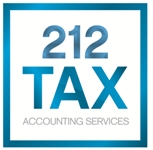An LLC, or Limited Liability Company, is a hybrid between a corporation and a partnership. In an LLC, the owner or owners has the freedom of decision making while still protecting their own personal property or investments. Most LLC’s need at least one member, and this person is responsible for filing the appropriate taxes for the LLC.
Michael Kinney is a business owner in Michigan. He owns and operates his own pizza truck business, and he knew he needed to form multiple LLC’s to best serve his interests. He struggled with the forms, and he had no idea how to get started filing his business properly with his state. Amil at 212 Tax was able to expedite the process for him so he could get his business running in no time.
While starting an LLC for your business might sound tricky, Amil and the expert team at 212 Tax can help you through the process. The first step is deciding whether an LLC is right for your business. To help you understand the role of LLC’s, let’s address some of the most common misconceptions.

Myth 1: LLC’s are the same everywhere.
Each state has different laws regarding LLC’s. In some states, you only need one person to form an LLC, while others require more members. For instance, Nevada is one of the most popular states to start an LLC since corporations in Nevado don’t pay income tax. In order to set up an LLC in a state, you need to have business presence there, meaning you need to be operating your business there.
Myth 2: LLC’s are like corporations.
People often mistake the term LLC for Limited Liability Corporation, but it’s really Limited Liability Company. LLC’s don’t pay taxes at the business level, and the profit of the business is considered to be member income. A corporation, on the other hand, is considered a separate legal entity and it has shareholders and a Board of Directors who oversee business.
Myth 3: LLC’s are only for small businesses.
When people think of LLC’s, they usually think exclusively of small businesses. However, many large companies are actually LLC’s. Some of the most well-known companies like Amazon and Chrysler are actually LLC’s.
Myth 4: LLC’s are taxed less than sole proprietorships.
One of the most common reasons business owners choose to form an LLC over a sole proprietorship is the idea that LLC’s are taxed differently. In an LLC, all of the business profits and losses are reported on member’s personal taxes. For tax purposes, LLC’s are treated by the IRS as sole proprietors or partnerships, resulting in no significant tax benefits in most cases.
Myth 5: Forming a LLC frees the owner of personal liability.
While LLC’s are designed to protect the personal assets of the business members, all businesses are open to certain risks. No company, regardless of registration status, is completely exempt from legal action or loss. If you’re concerned about protecting your assets, speak to a qualified business advisor.
Myth 6: Small businesses should wait before forming a LLC.
The legal paperwork required to form an LLC is enough to scare a lot of business owners away. It’s easy to think you should wait until you’re ready to launch your business or product before you form an LLC, but this can result in an array of unexpected problems. Liability issues can arise at any time in the business process, and it is best to form an LLC as soon as possible.
Myth 7: Forming an LLC is complicated.
While LLC’s might seem complicated at first, they’re not as daunting as they sound. If you have the time to understand the filing process, you can form an LLC on your own. However, government forms are complicated. In Michael Kinney’s case, it was easiest to have a tax expert like Amil do the hard work for him so he could focus on the work he enjoyed doing most.
If you’re concerned you won’t be able to file accurately on your own, it’s best to work with an expert with experience filing LLC forms such as the team at 212 Tax. Working with a qualified professional can make the presses seamless and stress free.
Don’t listen to the misconceptions.
There are a lot of confusing misconceptions surrounding LLC’s. If you’re starting your own business, you should consider your different registering options. If you’re wondering whether an LLC is right for your business, speak to a filing expert.


